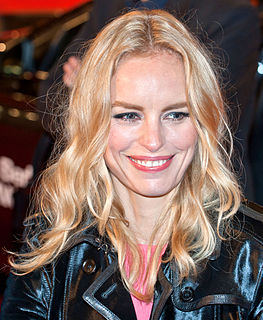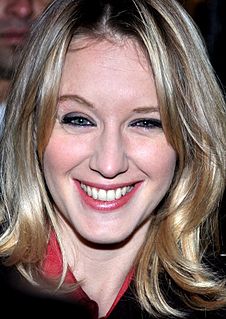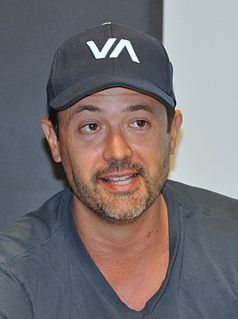A Quote by Albert Brooks
Even in my comedies, I don't take anger as a joke. I think anger and laughter are very close to each other, when you think about it. One of the things I like about a character: I always think it's fascinating when a character can turn on a dime and go from one emotion to another. I like watching that.
Related Quotes
There is nothing wrong with anger. Anger is a beautiful emotion, as valid and rich as joy or laughter. But you have been taught to repress your anger. Your anger has been condemned. If anger is unexpressed, it will slowly poison you. The key is to know how to express your anger. Do not throw it out onto any one. No one is responsible for your anger. Simply express your anger. Beat up a cushion. Go for a run. Express your anger to a tree. Dance your anger. Enjoy it.
The first thing that happens is the cleansing of the former character. I don't think a lot of actors talk about it, but there is usually a process where you essentially purge yourself of the character played prior to the movie. Then you want to think about what the character represents, and you write down all of the elements about this character and then take the time to find some synchronicity and start breathing the character.
We really have a close friendship with Christian Petzold, which means we can be more frank and open towards each other, always with total respect. But, we push each other a bit further and further always, and we're always still curious about each other. And when he talks about a story he's thinking of doing, then the whole process is so special because I'm involved in a very early stage and I have the feeling I can, and not only, influence anything about my character, but about the whole story that my character's in.
When I'm following what a character does in a book I don't have to think about my own life. Where I am. Why I'm here. My moms and my brother and my old man. I can just think about the character's life and try and figure out what's gonna happen. Plus when you're in a group home you pretty much can't go anywhere, right? But when you read books you almost feel like you're out there in the world. Like you're going on this adventure right with the main character. At least, that's the way I do it. It's actually not that bad. Even if it is mad nerdy.
Anger is a response that can lead to harm if we don't evaluate what we are upset about. Ask yourself what you are afraid of, as anger is almost always fear in disguise. If we think something or someone threatens us, we feel fear-fear that we are inadequate, that our lives are out of control, that things won't go our way. Then we fight. Find out what you're upset about. We rarely are upset for the reason we think.
Like anyone else, I too have the potential for violence; I too have anger in me. However, I try to recall that anger is a destructive emotion. I remind myself that scientists now say that anger is bad for our health; it eats into our immune system. So, anger destroys our peace of mind and our physical health. We shouldn’t welcome it or think of it as natural or as a friend.
If you think of even Tolstoy or a book like 'Anna Karenina,' you go from character to character, and each section is from the third person perspective of a different character, so you get to see the whole world a little more kaleidoscopically that way. That's traditional narrative manner, and I haven't done a book like that before, but I enjoyed it.
I just really like the characte [Jasper Hale], and I love the story [Twiglight], I think it's a very strong character and I respect him. It's interesting; I respect the character that I play. I don't understand it, but I do. That's a good thing. I think so, I think so. I never felt like that before with a character.
I think 'Scarface' is a great film, but if you have a character like Tony Montana, you don't identify with him at all. I think it's very interesting instead to identify yourself with a character you don't like all the time. You can create a tension between the fiction and the viewer. You force the spectator to wonder about his actions.


































